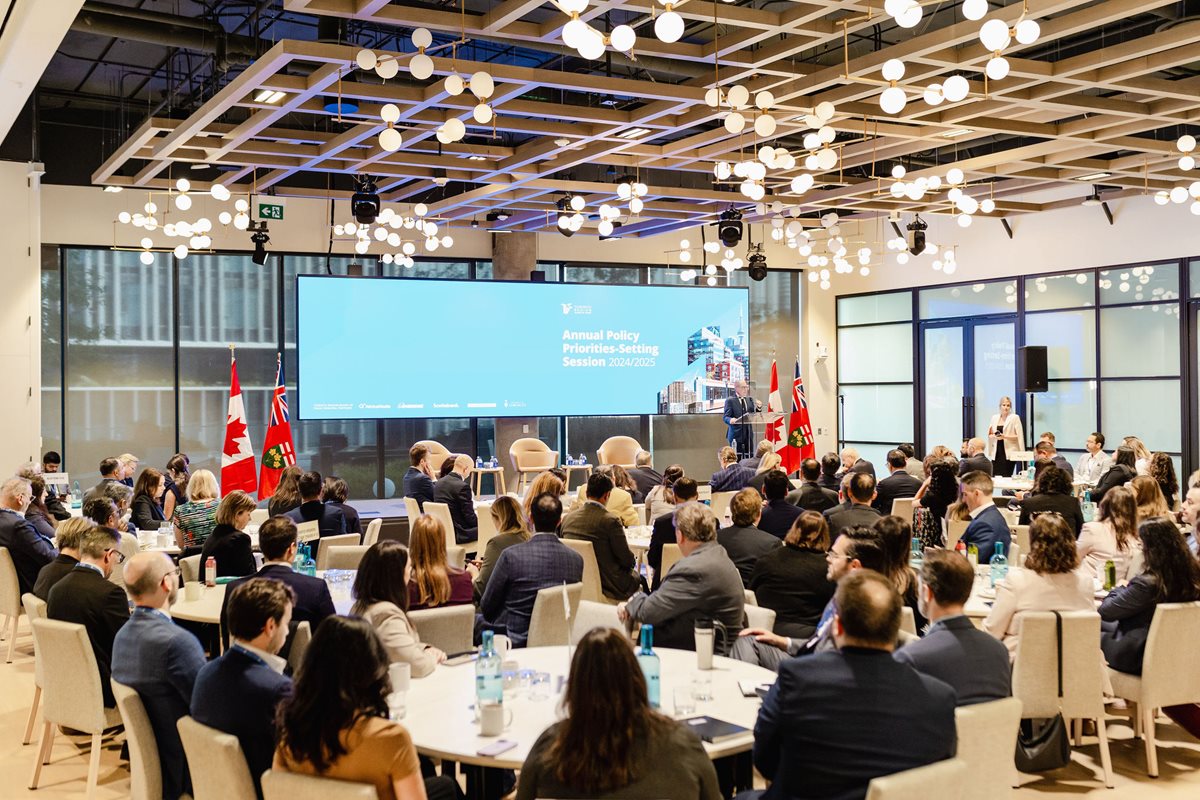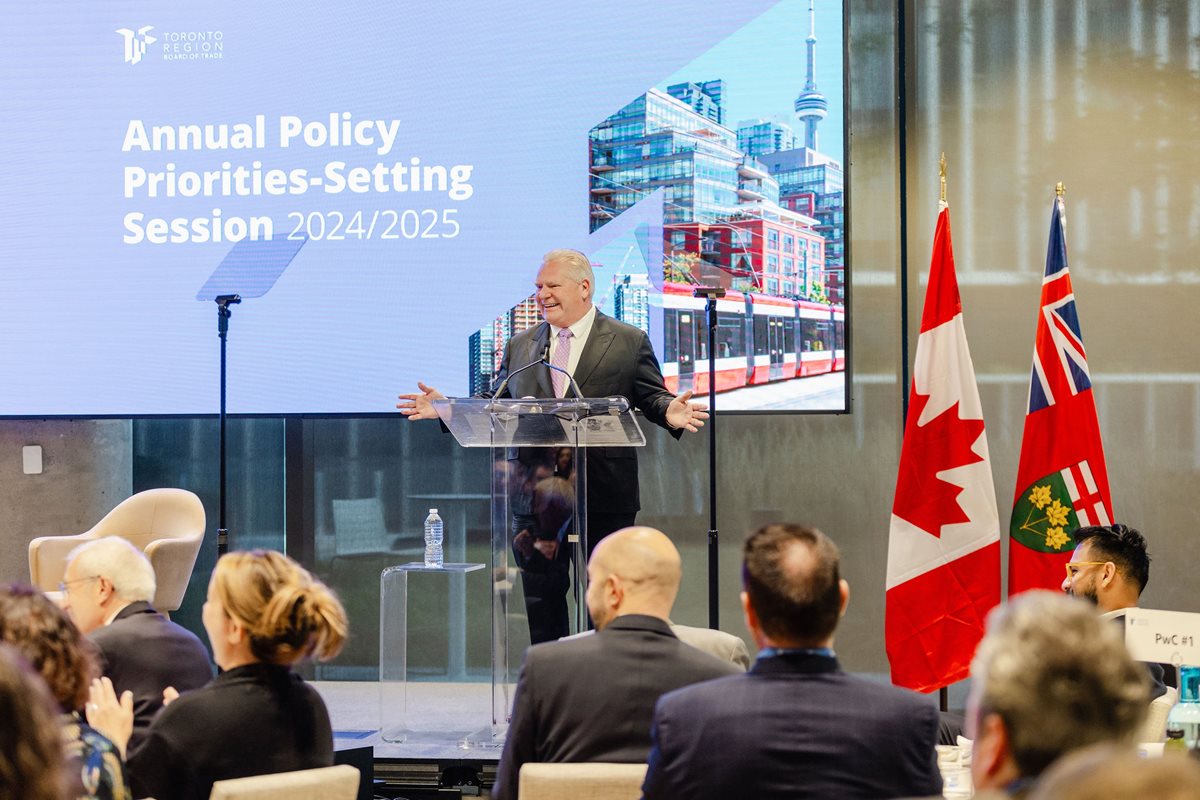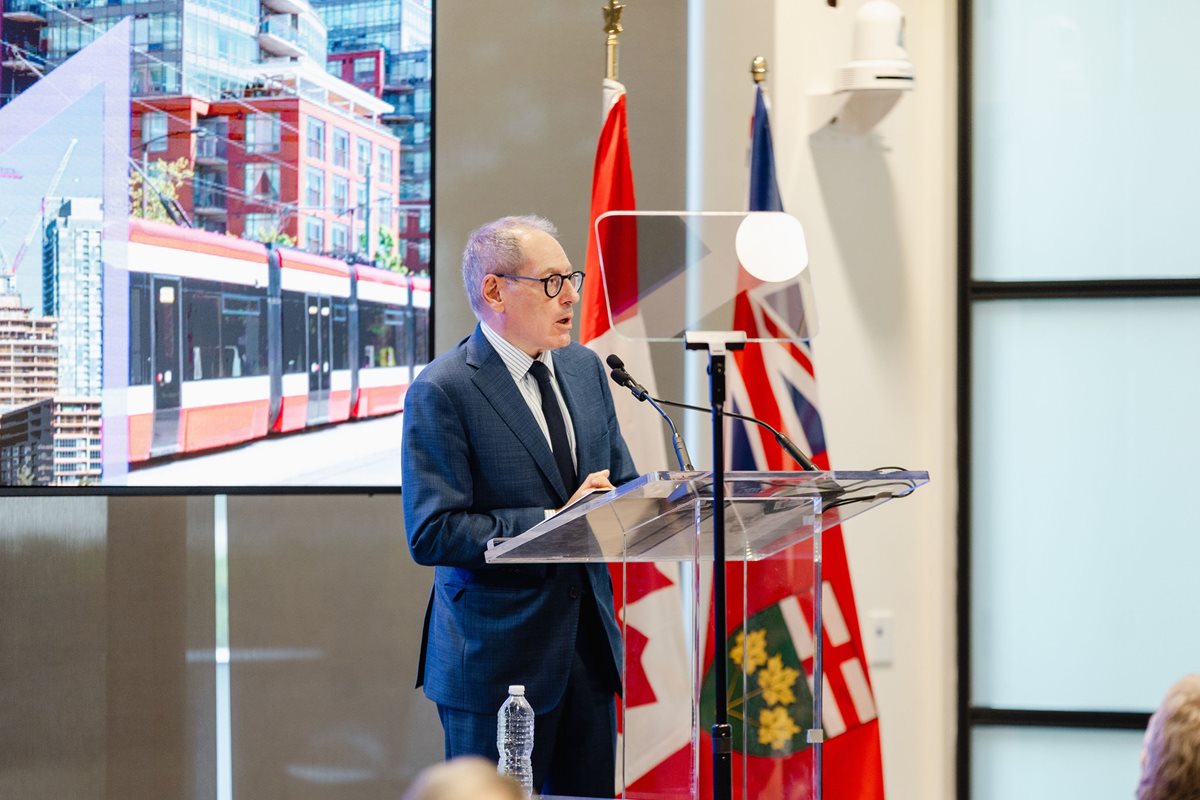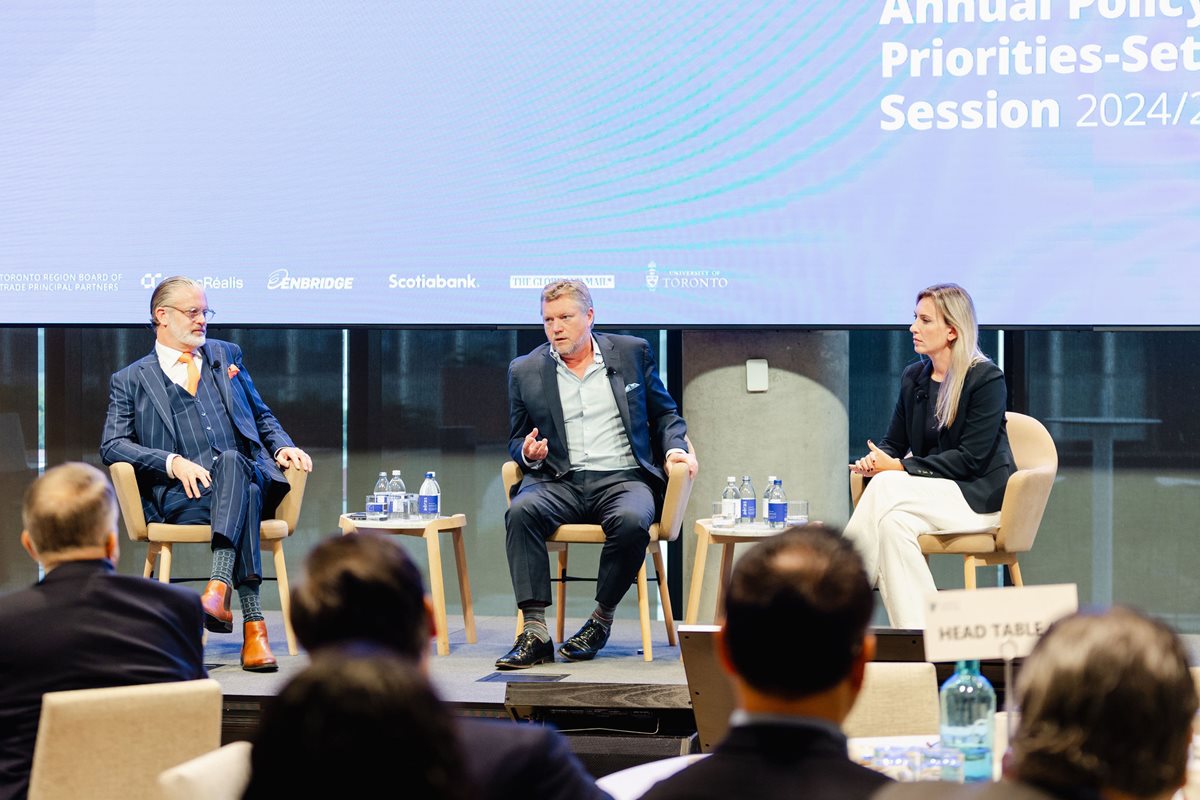
The Toronto region is facing a productivity and affordability crisis, compounded by looming geopolitical uncertainty. However, the Toronto Region Board of Trade is ready to lead in these challenging times. Last week, the Board’s Influencer members gathered for the annual Policy Priorities-Setting Session. Setting a clear agenda for the year ahead, the Board’s Policy Committees are focused on driving business growth, boosting productivity, and creating the conditions for long-term prosperity.

Premier Doug Ford kicked off the conversation with an update on his economic growth strategy for the province, emphasizing long-term prosperity over short-term gains:
- Revitalizing high-value manufacturing: "We've reversed a decade-plus of steady decline in the Province's high value manufacturing sector with big investments in new EV platforms, battery plants and supply chain facilities, green steel and pharmaceutical production," Ford stated.
- Expanding transit infrastructure: "We're launching a long-overdue $80 billion transit and commuter rail expansion (the biggest in North America) to serve the region's ballooning population," the Premier announced.
- Building a nuclear renaissance: Ford emphasized, "We're putting in place the underpinnings of a made-in-Ontario nuclear renaissance intended to double the capacity of the Province's clean energy grid by 2050, revive our lucrative nuclear technology exports and make the Province a clean energy exporter to the US."

Addressing Canada's productivity slide and its implications for the region's prosperity, the Board’s President & CEO Giles Gherson said: "Canada's productivity has fallen for the past 13 quarters, all the way back to where it was in 2016. The situation is serious. We're becoming a country poorer than our peers. We're at risk of losing opportunities and we're at risk of losing talented people as a result. Losses we simply can't afford."
With this in mind, Gherson highlighted potential solutions that include opportunities to make better use of productivity enhancing machinery, equipment and artificial intelligence, to drive economic growth. "Recently Microsoft reported AI has the potential to add an additional 2% in annual GDP growth for Canada, highlighting the potential for the AI revolution—birthplace Toronto remember—to drive our rebound." He also stressed the importance of focusing on productive capacity, "Building our productive capacity, growing our exports, and bringing investment back to our region must be our government's primary objectives. Only by growing production can we pay for consumption, the programs and services that we need, and our citizens expect."

With potential federal, provincial, and U.S. elections on the horizon, our expert panel, moderated by The Globe and Mail’s Laura Stone, provided valuable insights on the changing political landscape and its implications for the Toronto region's economy.
Kory Teneycke, Co-Founder and CEO of Rubicon Strategies, emphasized the importance of aligning with Western allies in trade policies: "We have a protectionist world order that's coming into place and we're going to have to decide what side of that we're going to be on." He further elaborated on the global trade dynamics, stating, "We're really seeing the world breaking into a couple of different trading blocks...countries that are basically aligned on values and rules-based trading systems, and then you're seeing countries of a more totalitarian bent."
Teneycke also highlighted the need for Canada to match U.S. trade policies, particularly regarding tariffs on Chinese battery and EV manufacturing. He warned, "If we do not match what the U.S. is doing in terms of trade policy, it is going to have major repercussions for us in terms of those negotiations."
Scott Reid, Principal and Co-Founder of Feschuk-Reid, focused on the potential challenges of a Trump presidency: "The big risk, particularly if it's Trump, is that there's a genuine question mark about his presidency. Will it be resistant to pressure, will it be resistant to influence? What if that's his approach to trade policy? What if that's his approach to allies?" Reid emphasized the need for businesses to prepare for unpredictability, advising against seeking shortcuts, or relying solely on personal connections to navigate potential policy shifts.
Both of our experts agreed on the importance of maintaining strong relationships across political lines.
Teneycke praised Premier Ford's approach to working with leaders of different political stripes, citing examples of collaboration with Prime Minister Trudeau on the EV front and Mayor Olivia Chow on Toronto's budget and infrastructure needs.
Following the remarks, Policy Committee members also participated in a session focused on unpacking the themes and issues that are front of mind for the region’s business community. As always, the Board is working to help members:
- Stay Informed and Be Proactive: Keep abreast of evolving trade policies, especially concerning CUSMA renegotiations. Anticipate potential impacts and prepare contingency plans for various scenarios. The Board is planning to host an event on this issue in November.
- Engage with Government: Influencer members have the opportunity to actively participate in policy discussions at all levels of government. Your voice and expertise are crucial in shaping policies that affect our region's economic future.
- Focus on Productivity: Embrace productivity-enhancing technologies, particularly AI and automation. As Premier Ford and Giles Gherson emphasized, boosting productivity is key to our region's competitiveness and prosperity. This is central to the work of the Business Council of Toronto.
- Foster Collaboration: Work closely with industry peers to develop robust strategies for navigating economic challenges. Share best practices and create a united front in addressing common concerns. Board events and World Trade Centre Toronto programming provide unparalleled opportunities to connect with peers.
- Focus on Talent Retention: Develop strategies to retain and attract top talent, countering the potential brain drain highlighted in our discussion. See our Workforce Leading Practice Guides.